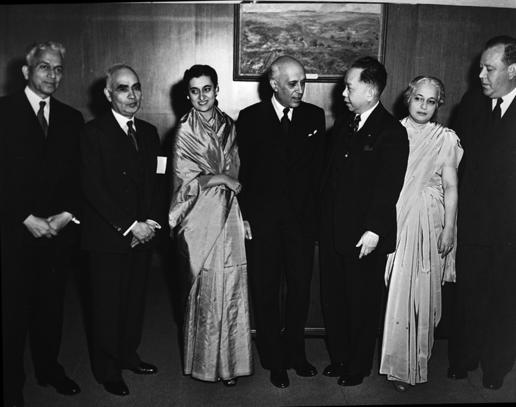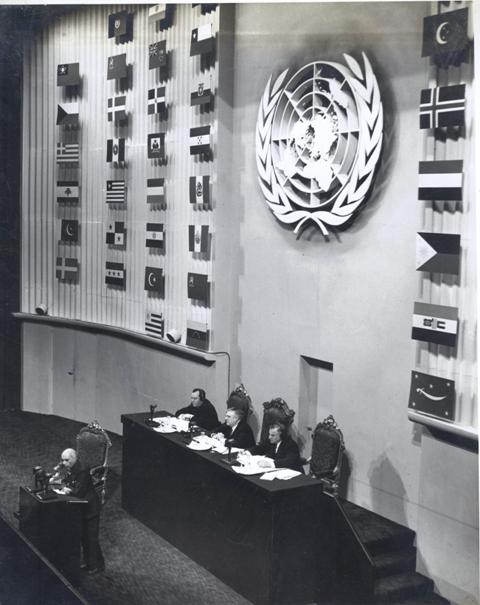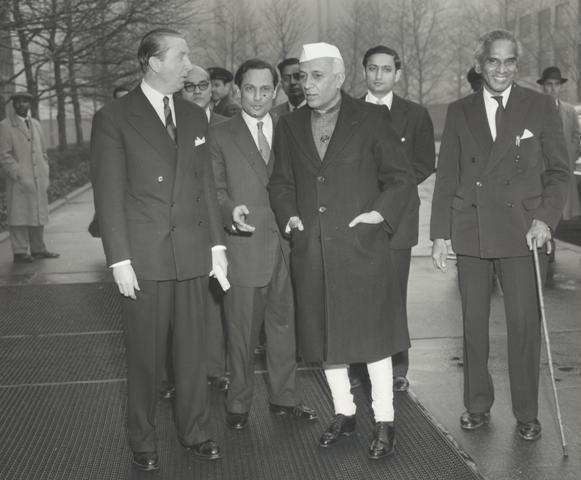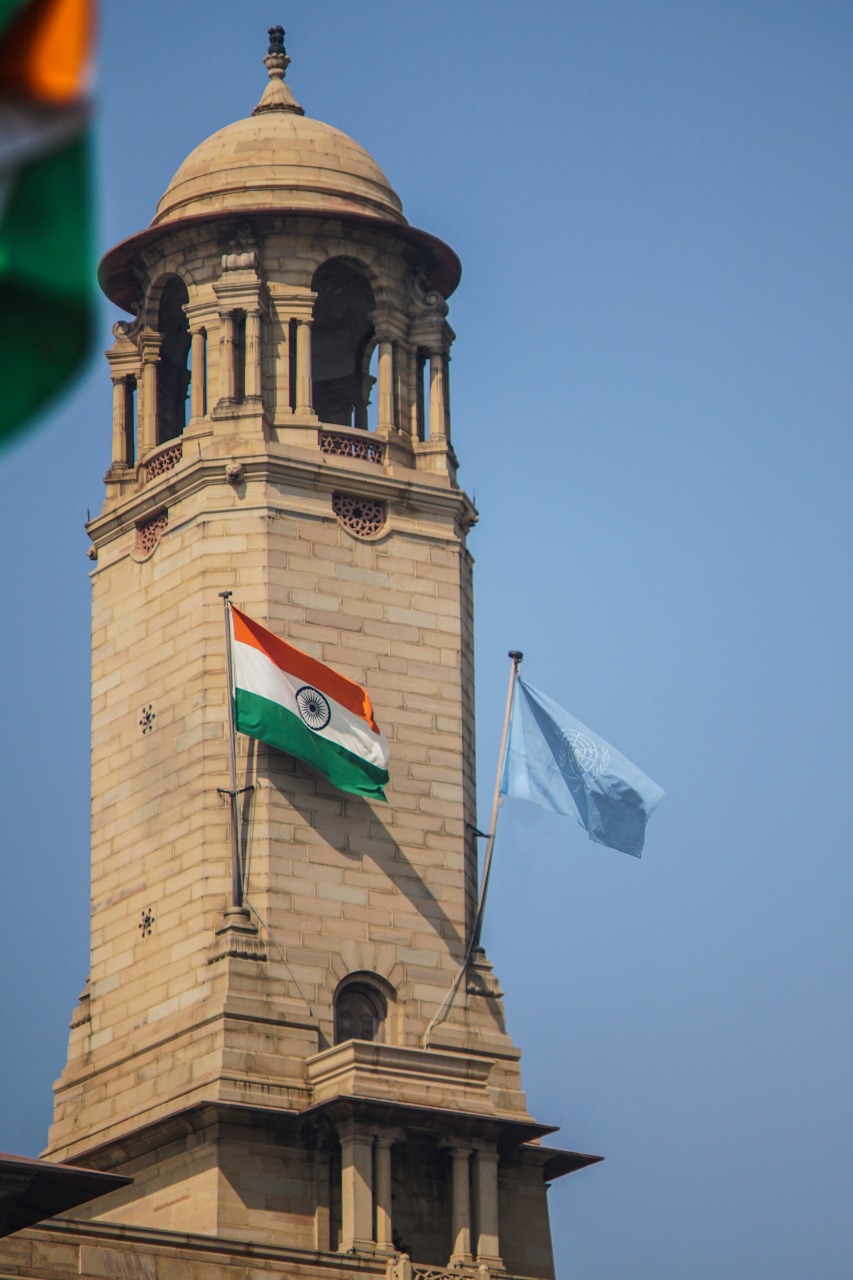
India was among the charter members of the United Nations that signed the Declaration by United Nations at Washington, D.C., on 1 January 1942 and also participated in the United Nations Conference on International Organization at San Francisco from 25 April to 26 June 1945. As a founding member of the United Nations, India strongly supports the purposes and principles of the UN and has made significant contributions in implementing the goals of the Charter, and the evolution of the UN’s specialised programmes and agencies.
India has been a non permanent member of the UN Security Council for eight terms (a total of ongoing 16 years), with the most recent being the 2021–22 term.

India is a member of G4, group of nations who back each other in seeking a permanent seat on the Security Council and advocate in favour of the reformation of the UNSC. India is also part of the G-77.
India is a charter member of the United Nations and participates in all of its specialised agencies and organizations. India has contributed troops to United Nations peacekeeping efforts in Korea, Egypt and the Congo in its earlier years and in Somalia, Angola, Haiti, Liberia, Lebanon and Rwanda in recent years, and more recently in the South Sudan conflict.
India was one of the original members of the League of Nations. In principle, only sovereign states can become UN members. However, although today all UN members are fully sovereign states, four of the original members (Belarus, India, the Philippines, and Ukraine) were not independent at the time of their admission. India signed the Declaration by United Nations on 1 January 1942 and was represented by Girija Shankar Bajpai who was the Indian Agent-General at the time. Afterwards the Indian delegation led by Sir Arcot Ramaswamy Mudaliar signed the United Nations Charter on behalf of India during the historic United Nations Conference on International Organization held in San Francisco, United States on 26 June 1945. Sir A. Ramaswamy Mudaliar later went on to serve as the first president of the United Nations Economic and Social Council.
India gained full independence in 1947. Independent India viewed its membership at the United Nations as an important guarantee for maintaining international peace and security. India stood at the forefront during the UN’s tumultuous years of struggle against colonialism and apartheid. India’s status as a founding member of the Non-Aligned Movement and the Group of 77 cemented its position within the UN system as a leading advocate of the concerns and aspirations of developing countries and the creation of a more equitable international economic and political order. India was among the most outspoken critics of apartheid and racial discrimination in South Africa, being the first country to have raised the issue in the UN (in 1946).
Click here to access more info and explore further.
The First Session of the UN Council was held in London on 17th January 1947. The five permanent members are given ‘great power unanimity’ referred to as the veto power, which means if any of these countries veto a resolution it can’t be passed even if it has the 9 votes needed.
India Elected as Non-Permanent Member of UNSC
In June 2020, India was elected to the UNSC as a non-permanent member, winning 184 out of the 193 votes at the UNGA. This membership is for 2021-22. India was the only candidate from the Asia-Pacific category for the year 2021-22. This is India’s eighth stint at the UNSC. Previously, India had been a member in the years 1950-1951, 1967-1968, 1972-1973, 1977-1978, 1984-1985, 1991-1992 and 2011-12.
In CWIHP Working Paper #76, “Not at the Cost of China: New Evidence Regarding US Proposals to Nehru for Joining the United Nations Security Council,” author Anton Harder examines the controversy surrounding India’s role in the United Nations Security Council in the 1950s. Using Indian archival material from the Nehru Memorial Museum and Library, this paper shows that America’s interest in seeing India join the Security Council was motivated by the emergence of the People’s Republic of China as a regional power, and that this episode was an early example of the United States attempting to use the United Nations to further its own Cold War interests.
Not at the Cost of China: New Evidence Regarding US Proposals to Nehru for Joining the United Nations Security Council
The issue of India’s right to a seat on the United Nations Security Council (UNSC) is a controversial one in India today, but it is not new. The historical controversy has centered on the culpability of independent India’s first Prime Minister, Jawaharlal Nehru, in not seizing several alleged opportunities for India to join the United Nations Security Council as a permanent member in the 1950s. Nehru’s critics, then and now, accuse him of sacrificing India’s national interest on dubious grounds of international morality. The question, however, goes beyond Nehru’s reputation, as it provides rare insights into India’s relations with the United States and the People’s Republic of China (PRC) at the beginning of the Cold War.
Click here to access more info and explore further.

